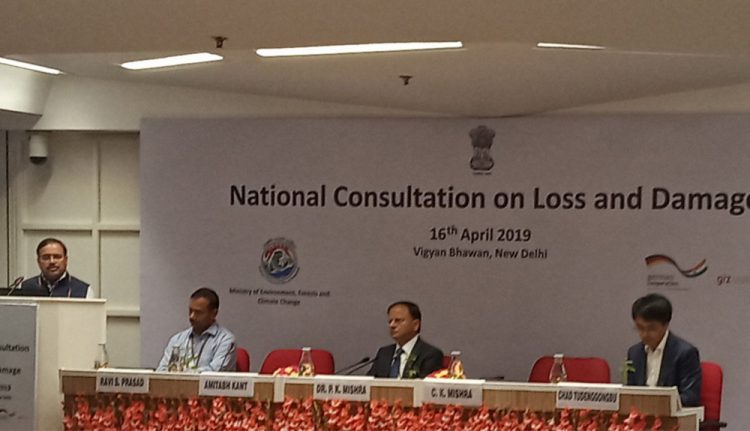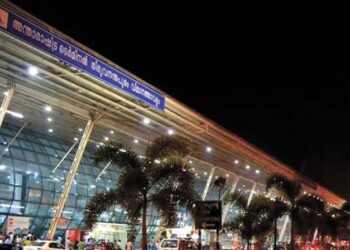New Delhi: A one-day National Consultation on Loss and Damage, to deliberate and brainstorm on emerging perspectives on approaches to assess, minimise and address climate-related loss and damage, was hosted by the Ministry of Environment, Forest and Climate Change in New Delhi.
The workshop was inaugurated by Additional Principal Secretary to the Prime Minister, Dr. P. K. Mishra, who mentioned that India has been experiencing weather and climate related loss and damage, the Kerala floods and Ockhi being the rarest of the rare events. Given the evolving scenario, he suggested that the past is no longer a good guide for the future, and therefore such workshops are important. He identified five principal challenges that need to be addressed, including the need to understand not only the total quantum of loss but also its location, as well as impact on gender and social groups, the need to go beyond what is easier to measure, such as biodiversity loss, ecosystem services etc., address the attribution of the loss and damage, generate scenarios for future situations and invest in adaptive capacities, and the need to bring out clearly that loss and damage is not only an issue for small island developing countries, but also a critical issue in large countries like India which has a long coastline with numerous islands and coastal cities and Himalayan states at the risk of glacier outbreaks. He further underlined that India has committed to ensuring climate justice and mentioned the need for the developed countries to show greater commitment to support the most vulnerable and developing countries, including financial and capacity building support.
CEO, NITI Aayog, Amitabh Kant, complimented the Ministry for the unique initiative of organizing the workshop and mentioned that the topic of loss and damage has become a major pillar of international negotiations under UNFCCC and has gained importance since COP 19 held in Warsaw. He highlighted that India, being bigger than 23 European countries and having a higher rate of growth and population, is facing greater challenges as compared to developed countries.
Secretary, Environment, Forest and Climate Change C. K. Mishra highlighted that GHG emissions have been talked many times, but the discourse needs to move to critical elements and systematic planning. He urged the global community to come up with a global plan to address the issue loss and damage.
Chad Tudenggongbu, representative from UNFCCC, talked about the global context of the issue of loss and damage, including heat waves, tropical cyclones, salinization, glacial retreat and desertification. He highlighted that the response action for loss and damage often requires multinational arrangements, with enhanced action and support.
The workshop had two technical sessions on specific topics including ‘Strengthening response to address loss and damage’ and ‘Approaches to assess, manage and address climate risks and loss and damage’ with eminent speakers from various State Governments, organisations and institutions including International Institute for Applied Systems Analysis, IIT Delhi, Madras School of Economics, National Institute of Disaster Management, ActionAid International, Government of Tamil Nadu, Government of Uttarakhand, Government of Kerala, GIZ, and Indian Institute of Public Administration.











